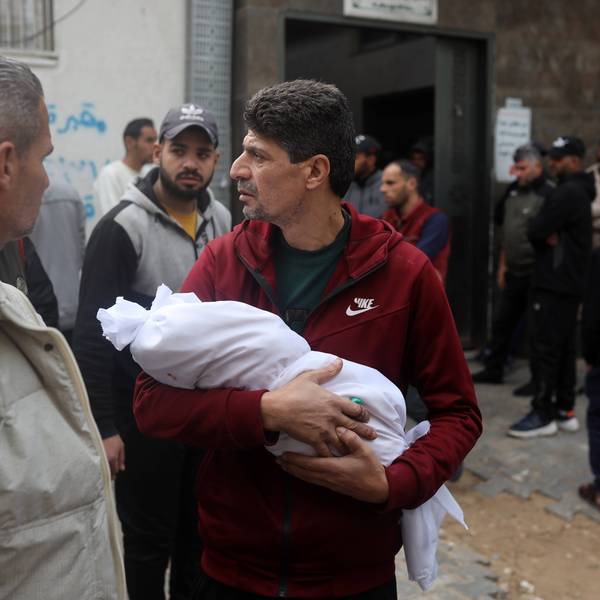Update: The death toll from Wednesday's attacks has risen to at least 20, with more than 450 others injured, according to Lebanon's Health Ministry.
Earlier: A day after an Israeli attack caused thousands of pagers to explode across Lebanon, killing a dozen people including children and wounding over 2,800 others, new explosions of battery-powered devices killed at least nine more people and injured upward of 300 others around the Middle Eastern country, according to the Lebanese Health Ministry.
Multiple Lebanese and international media outlets reported that targets of Wednesday's attacks included people attending funerals of those killed by the previous day's explosions.
"Anyone who has a device, take out the battery now! Turn off your phones, switch it to airplane mode," Hezbollah security members commanded mourners at one funeral in a Beirut suburb,
according to The Washington Post.
While the source of Wednesday's blasts—which reportedly targeted smartphones, car radios, walkie-talkies, solar power components, and other devices—was not immediately clear, several media outlets confirmed that the previous day's attacks were carried out by Israeli military and intelligence operatives targeting members of the Lebanese political and paramilitary group Hezbollah.
Among the reported victims of the pager attacks were two children—
Fatima Abdullah, a 9-year-old girl; and Bilal Kanj, an 11-year-old boy.
The device explosions came amid ongoing Hezbollah attacks on Israel with rockets, armed drones, and other projectiles that have killed dozens of people, including
Druze children playing soccer in the illegally occupied Golan Heights in Syria.
Hezbollah vowed Wednesday that Israel would suffer a "difficult reckoning" in response to the device attacks. The group is allied with Hamas, which rules the Gaza Strip and led the October 7 attack on Israel. Israel's ongoing retaliation—for which it is on trial for genocide at the International Court of Justice—has left more than 146,000 Palestinians dead, injured, or missing.
Numerous observers including experts on international law said the Israeli device attacks fit the legal definition of terrorism.
Pointing to
video footage of a pager detonating in a crowded market, Heidi Matthews, an associate professor at the Osgoode Hall Law School of York University, wrote that "each explosion constitutes an indiscriminate attack," and that "under these circumstances, this is an act of terror."
In a Wednesday briefing, United Nations Secretary-General António Guterres warned against the weaponization of civilian objects.
"What has happened is particularly serious, not only because of the number of victims that it caused, but because of the indications that exist that this was triggered, I would say, in advance of a normal way to trigger these things, because there was a risk of this being discovered," Guterres
said.
"This event confirms that there is a serious risk of a dramatic escalation in Lebanon, and everything must be done to avoid that escalation," he added.
Belgian Deputy Prime Minister Petra De Sutter condemned what she
called Israel's "brutal escalation of violence."
"Silence is not an option," she added. "An international investigation is called for. The bloodshed must end."




